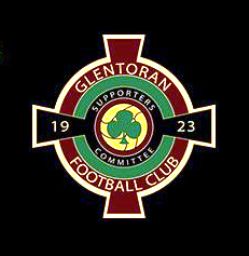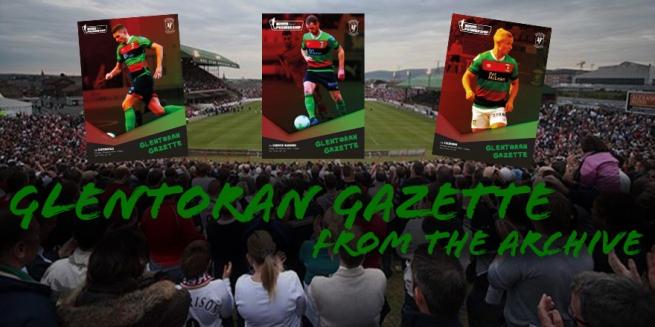
A TALE OF TWO LETTERS
The sixth of Brian McClelland's compelling series of articles on significant figures from Glentoran's history. Many thanks to the Glentoran Supporters Committee (1923) for use of this material.
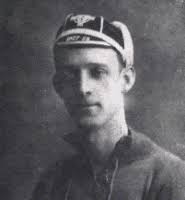
The tall young man waits eagerly for the letter to drop through his letterbox. With growing impatience he snatches the envelope as it touches the ground, tearing it open in one motion. Dated 12th February, 1931, it is from the Secretary of the Irish Football Association, and addressed to a Mr Frederick Charles Roberts of 37 Finvoy Street. Fred’s heart swells with pride as he reads the first paragraph:
“Dear Sir, - I have pleasure in informing you that you have been selected to represent your country as centre forward in International Match – Ireland v. Scotland - to be played at Windsor Park, Belfast on Saturday 21st, February, kick-off at 3. p.m.”
This is how the legendary “Big Fred” Roberts, Glentoran’s goalscorer supreme, heard of his first and, as it happened, only, international cap. The game itself ended in a scoreless draw leaving Roberts frustrated at having failed to break the deadlock. “There were plenty of chances and one in particular sticks in my mind,” he related. “Right winger, Hughie Blair, sent a great cross into the goalmouth. I was perfectly positioned and a goal looked certain but the Scottish goalkeeper, Johnny Thompson, reached out and plucked the ball practically off my head. How he got to it I’ll never know.”

Nonetheless, Fred, a shipyard foreman, had been capped for his country, he was on top of the world, having come a long in a few years since winning an Irish Junior cap against Wales when playing for little Broadway United in season 1927-28. Born in Susan Street, in the heart of Ballymacarrett, Fred spent five seasons with Glentoran since making his debut on the 20th August, 1928 when he scored the only goal of the game at Newry. By the end of season 1932-33 Fred had notched up an unbelievable 332 goals for the Glens.
In May, 1933, a mere two years after being capped, another formal letter, hit his doormat. Its contents would cause a sensation in the local football world. It was from Glentoran’s secretary, Harry McKittrick, and this time, instead of joy, it would bring heartbreak, leaving Roberts, holder of the goal scoring record of Northern Ireland senior football, 96 goals in 47 appearances, a distraught and bewildered young man:
“Dear Sir, - I am instructed to inform you that my directors have decided to grant you a free transfer and your name accordingly has been removed from the retained list of the club.”
Curt and cruel, you might say, but more than that, it came so suddenly and unexpectedly that player and public were mightily surprised. Roberts himself had not received as much as a hint of the axe that was about to fall on his football career at the Oval, until in receipt of that clinically cold letter of dismissal. My goodness, he had just finished his fifth season with Glens, he was due a pay rise and a benefit game. Instead, at the age of 28, he had the door was slammed in his face. Why did it happen?
I had the pleasure, all too brief as it turned out, of knowing Fred Roberts’ son, also called Fred. We had shared a hospital ward a quarter of a century ago. Sadly, he died some months after having undergone a serious operation. I survived a similar operation but still carry that sense of guilt; why him, not me? I got to know Fred Junior quite well in those few, short weeks and feel I have an emotional stake in giving his father’s side of the story.
Fred Junior, also a very tall man, kindly gifted me his father’s copy of “Back to the Oval”, the 1949 souvenir and history of Glentoran, in which his father figures quite prominently. I was also thrilled to hold Big Fred’s Junior and Senior international caps and to be given copies of that private correspondence mentioned above, and contemporary newspaper cuttings.
I return to my question: Why did it happen? Why did the club sack a player at the top of his game, a man revered by the fans? Roberts himself, with little rancour, provides the answer; “it was generally recognized that the club was bound to make some changes and reduce their big wage bill, which was both a costly and extensive one, but scarcely anyone was prepared to see such a wholesale sweep.”
You see, not only was Fred Roberts given his cards to save the club money, but also most of the squad including goalkeeper Bennett; full-back Little, who had been with Hamilton Accs and Dumfirmline; Peters, another Scottish full-back; Turnbull, Walker, and McClements, the half-backs; Crooks and McNeill, the inside-forwards; winger Lucas, and loyal club trainer, the one and only, Billy Ritchie.
These were the individuals who had brought Glentoran a League Championship flag in 1931, two Irish Cup victories, the County Antrim Shield and the City Cup in the short space of three years. With Johnny Geary also out injured and facing retirement, the directors’ decision to revamp the team was one of great magnitude, and either very brave or entirely foolhardy.
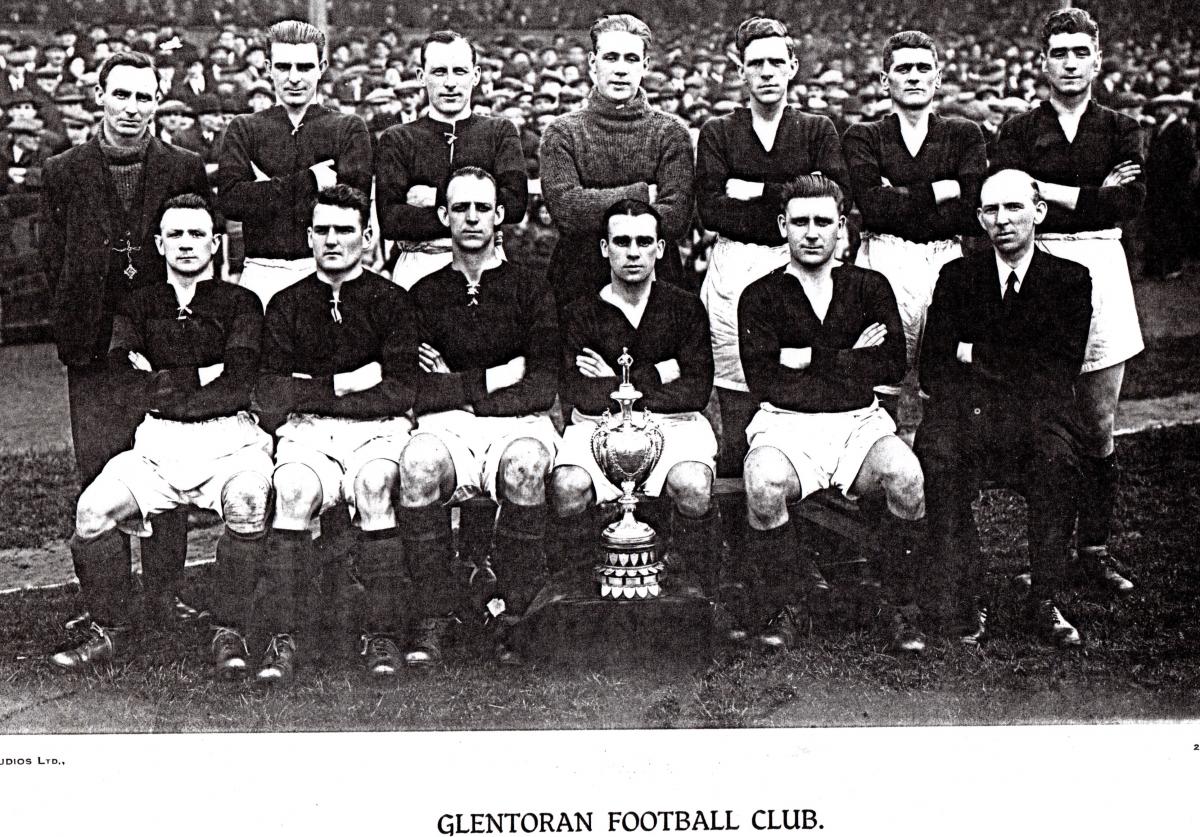
At this juncture, I must mention the Chairman of the club at that time, Mr Joe Shaw. It would seem that Shaw was prominent in the managerial side of Glentoran’s affairs and is credited with being a man of vision and boldness – attributes which were tested to the full. The “Back to the Oval” booklet stresses that his motives were always inspired by one thing,” his love for the old club”. Shaw was always at the helm in times of stress and no one found more joy than he, in the club’s hour of triumph.
The game goes on, as they say, and Glentoran survived their self-inflicted purge, their very own ‘Night of the Long Knives’. New players were signed, the Seconds had quite a few really good players coming along, Peter Doherty left to seek fame and fortune at Blackpool and trainer, Billy Ritchie, returned to the fold.
What of “Big Fred” Roberts? Well, he signed for Distillery, then Dundela and eventually, along with Johnny Geary, returned to the Oval to look after Glentoran’s second eleven. Later, he was made a life member of Glentoran – an honour he richly deserved. Fred passed on in 1988. Considering his many achievements, Fred was a proud and modest man, a unique goal scoring machine, the like of which, I’m sorry to say, will never be seen again.
Ten years later on 4th May 1941, the very day and month Fred Roberts claimed the all-time goal scoring record (4th May, 1931), German bombs would fall over Belfast and almost obliterate the Oval. Almost, but not quite, the game goes on.
Footnote: Today, as I sit at my computer revising this story, I notice the date: Monday, 4th May 2020. The coronavirus pandemic is threatening to do what Hitler failed to achieve all those years ago. We survived then and we will survive now. The game goes on.
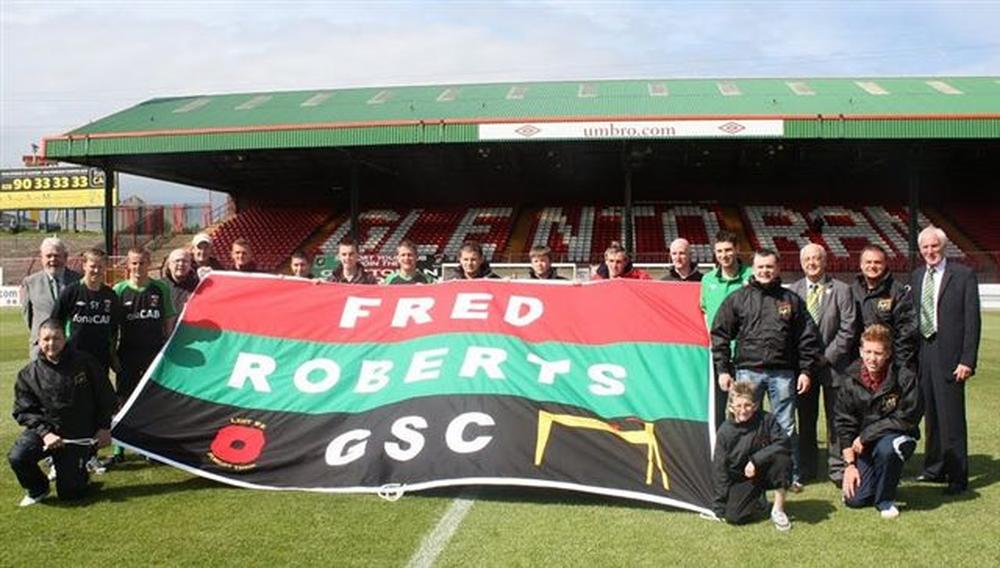
The Fred Roberts Glentoran Supporters Club inm 2010. Hon Secretarry is William Kirkwood, the current Glentoran groundsman
